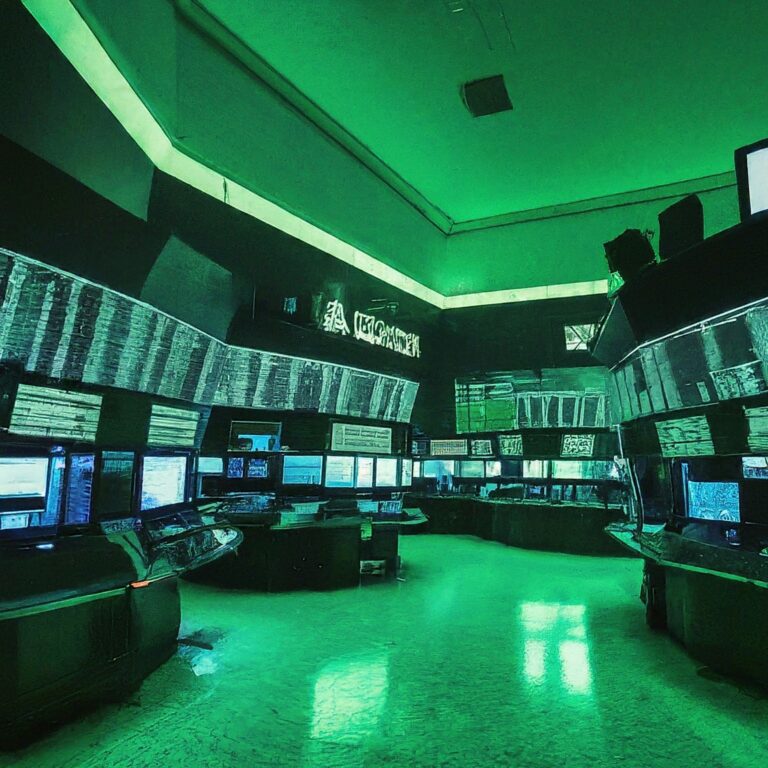The Collapse of Mt. Gox: A Deep Dive into the Bitcoin Exchange’s Downfall
Introduction

Imagine a financial system that’s not tied to any specific country, is both anonymous and transparent, and entirely digital. This was the promise of Bitcoin. Among the first to harness this potential was Mt. Gox, a pioneering Bitcoin exchange that, at its peak, handled 70% of all Bitcoin transactions worldwide. However, what began as a revolutionary venture ended in one of the most notorious collapses in cryptocurrency history.
The Genesis of Mt. Gox

Mt. Gox originally stood for Magic the Gathering Online Exchange, a site created by programmer Jed McCaleb. In 2010, seeing the potential of Bitcoin, McCaleb repurposed the domain to become the first Bitcoin exchange. The site’s early entry into the market positioned it as a leader in the burgeoning world of cryptocurrencies.
Early Challenges
From its inception, Mt. Gox faced technical challenges. Initial security flaws and poor coding practices led to significant losses. One early issue involved Liberty Reserve, a service used for money transfers. Hackers exploited vulnerabilities in the system, resulting in a loss of $50,000 before the bugs were fixed.
Change of Ownership
By 2011, McCaleb realized that managing Mt. Gox was more than he could handle alone. He sold the exchange to Mark Karpelès, a French developer living in Tokyo. However, Karpelès inherited a host of problems, including unresolved security issues and a growing user base that demanded more robust management.
Major Security Breaches
One of the first major incidents under Karpelès’ management was the Liberty Reserve exploit, where hackers manipulated withdrawal amounts. This was followed by a series of breaches, including the theft of the hot wallet file containing 80,000 Bitcoins, which remained untouched and inaccessible to this day.
The Big Heist

The most significant breach occurred between 2011 and 2013 when hackers siphoned 650,000 Bitcoins from Mt. Gox. The theft went undetected for nearly two years due to the lack of proper monitoring and security protocols. This massive loss was a key factor in Mt. Gox’s eventual downfall.
Operational Failures
Mt. Gox’s operational issues were not limited to external hacks. Internal mismanagement and technical errors contributed significantly to its problems. For instance, errors in transaction processing software led to users receiving more Bitcoins than they should have, resulting in further financial losses for the exchange.
Legal and Regulatory Issues
As Mt. Gox expanded, it ran into legal troubles. In 2013, the US Department of Homeland Security seized $5 million from Mt. Gox for operating as an unregistered money transmitter. Additionally, a lawsuit from CoinLab, a partner company, sought $75 million for breach of contract, further straining the exchange’s resources.
The Final Days

By 2014, Mt. Gox’s problems had reached a tipping point. On February 24, 2014, the exchange went offline, citing technical issues. Shortly after, it filed for bankruptcy, revealing that 750,000 customer Bitcoins and 100,000 of its own had been stolen. The total loss was valued at around $450 million at the time.
Investigation and Analysis
The aftermath of Mt. Gox’s collapse led to various investigations. Kim Nilsson, a software consultant, played a crucial role in analyzing blockchain data to trace the missing Bitcoins. His efforts, along with those of other investigators, aimed to piece together what had happened and where the funds had gone.
The Role of Blockchain Technology
Blockchain, the technology underpinning Bitcoin, is a public ledger that records all transactions. While it provides transparency, it also offers anonymity, making it difficult to trace specific individuals behind transactions. This dual nature of blockchain was both a strength and a weakness in the case of Mt. Gox.
Lessons Learned
The collapse of Mt. Gox highlighted the importance of robust security practices for cryptocurrency exchanges. It underscored the need for professional management and proper regulatory oversight to protect users’ assets. These lessons have influenced how current exchanges operate and manage security.
Current Status of Mt. Gox
As of today, investigations into the Mt. Gox collapse continue. Efforts are ongoing to recover lost funds and provide some compensation to affected users. Legal battles, including those with CoinLab, are still unresolved, adding complexity to the recovery process.
Impact on the Cryptocurrency Market
The fall of Mt. Gox had a significant impact on the cryptocurrency market. It led to increased scrutiny and regulatory measures aimed at preventing similar incidents. The collapse also spurred advancements in security technologies and practices within the industry.
Conclusion

Mt. Gox’s story is a cautionary tale in the world of cryptocurrency. It serves as a reminder of the risks associated with digital currencies and the importance of security and professional management. While the exchange’s downfall was a significant setback, it also paved the way for stronger and more secure cryptocurrency platforms.
FAQs
Mt. Gox was one of the first and largest Bitcoin exchanges, handling up to 70% of all Bitcoin transactions at its peak.
Mt. Gox collapsed due to a series of security breaches, operational failures, and legal issues, culminating in the loss of 750,000 customer Bitcoins and 100,000 of its own.
Investigations and legal proceedings are ongoing to recover lost funds and compensate affected users. The process remains complex and unresolved.
The collapse led to increased regulatory scrutiny and improvements in security practices across the industry. It highlighted the need for professional management and robust security in cryptocurrency exchanges.
Key lessons include the importance of strong security practices, the need for professional management, and the role of regulatory oversight in protecting users’ assets in the cryptocurrency market.
Tags: awareness, bitcoin, crypto, cryptocurrencies, cybersecurity, darknetmarkets, darkweb, ethicalhacking, internet, mtgox, privacy, safety, worldwideweb

Comments on 'The Collapse of Mt. Gox: A Deep Dive into the Bitcoin Exchange’s Downfall' (0)
Comments Feed